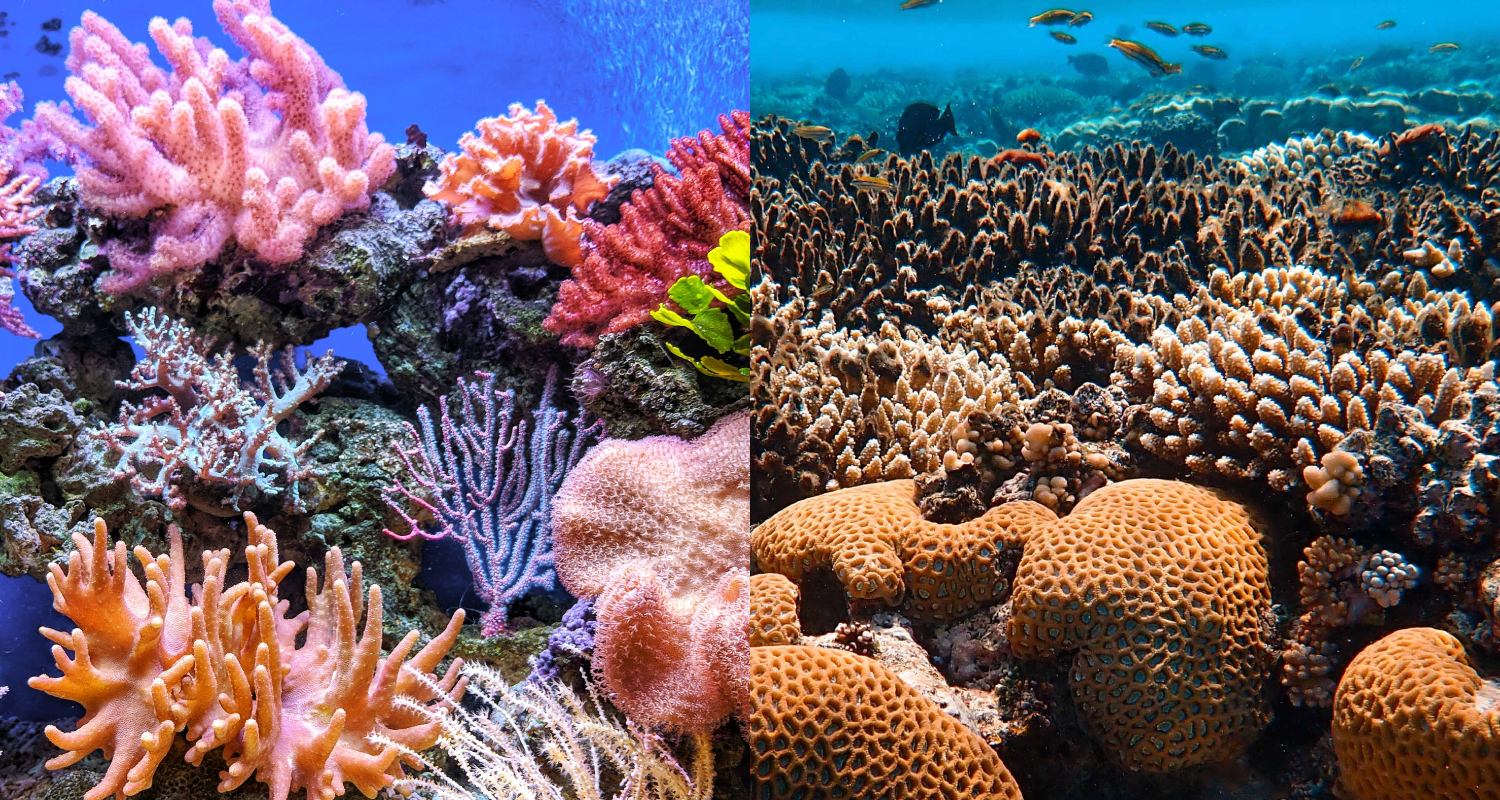
You lie there, sunglasses on, gazing at the clear blue sky with neither a cloud nor a worry in sight. The warmth of the sun gently caresses your shoulders as the soothing tidal waves crash onto the shore, cooling your feet while filling the moats of decorative sandcastle.
“Put on some sunscreen!” shouts the voice of your mom inside your head, ruining your moment of tranquility. As you get up to get away and take a swim, you put on your lotion that protects you against sunburn, premature aging, and cancer. Job well done!
However, did you know that the sunscreen protecting you could be causing harm to other living species? Every time you swim in the ocean, your sunscreen breaks down in the water and releases chemical components that contaminate coral reefs, which are essential to the marine life.
Should we stop protecting our skin? Of course not; that does not mean we have to leave other species to succumb to our actions. As the top of the food chain, we have a responsibility to protect what is beneath us. Here are three tips to find a reef-friendly sunscreen and avoid making waters murky.
1. Stay away from these three ingredients
More than 14,000 tons of sunscreen ends up in the ocean every year, according to the Coral Reef Alliance1. Accumulated directly from swimmers or effluents, these residues contain extremely toxic ingredients – even in minuscule quantities – for many marine species: oxybenzone, octinoxate, and benzophenone-2.
These substances protect the skin by acting as filters against UVA and UVB rays, but they cause immense mayhem within coral colonies such as induced bleaching, damage to their DNA, deformities and even death2.
Regardless of how mesmerizing the packaging may be, if it contains these three ingredients, it’s not a reef-safe sunscreen. To find out the risks associated with each ingredient listed on a label, consult the EWG SKIN DEEP® database

2. Choose a mineral filter
If the chemical filters have been harmful all this time, what should we do about UVA and UVB rays? Use mineral filters! There are two types of mineral filters used in sunscreens: zinc oxide and titanium dioxide; the aforementioned being the preferred filter in our products. And not just any: we use non-nano zinc oxide, a safe and effective filter according to EWG experts.
In comparison to titanium dioxide, which is recognized as a carcinogen in its aerosol form by the International Agency for Research on Cancer3,non-nano zinc oxide does not contain nanoparticles that can penetrate the skin. This is the key ingredient in reef-friendly sunscreen that is good for your skin and the environment.

3. Select plastic-free sunscreens
It’s not only the contents of the sunscreens that can pollute our oceans; it’s their containers as well. Keep your eyes open for reef-safe AND plastic-free sunscreen! To make that search easier, we designed our own plastic-free sun sticks! Made with non-nano zinc oxide, our SPF 30 mineral sun sticks work by forming a physical barrier on the skin that protects against UVA and UVB rays.

Say hello to the sun stick protector that rolls on without leaving a white, oily trace. With its unique texture that is suitable for all skin tones, it’s a great alternative to liquid! Here are some of our hypoallergenic and reef-safe sunscreen options:
Unscented Tinted Mineral Sun Stick – SPF 30: If you want to shine in no time, this should be your prime. Infused with nourishing ingredients like shea butter and coconut oil, our odourless tinted sun stick will leave your skin feeling soft and instantly revived with radiance. A shortcut to your summer glow.
Tropical Plastic-Free Mineral Sun Stick – SPF 30: With a tropical scent that will have you reliving your favourite summer vacation memories, this mineral sun stick comes in a biodegradable cardboard tube that can fit in any pocket. No plastic, no worrying ingredients, no stress: the perfect summer companion.
Unscented Baby & Kids Mineral Sun Stick – SPF 30: No more chasing children with a handful of cream. This sun stick, designed specifically for children, is easy to apply and won’t create a mess. Odourless and chemical filter-free, it is gentle on your child’s skin and the ocean.
Unscented Lip Balm – SPF 15: Chapped lips can ruin a beautiful smile. With this soothing, vegan lip balm that comes in plastic-free packaging, your smile and the coral reefs have nothing to worry about.
Armed with our reef-friendly sunscreen secrets, you will be swimming with the fishes, safely, in no time.
Sources :
- https://coral.org/en/blog/sunscreen-101-protecting-your-skin-and-coral-reefs/
- https://www.ewg.org/news-insights/news-release/hawaii-ban-2-toxic-sunscreen-ingredients-protect-fragile-coral-reefs
- https://www.cancer-environnement.fr/559-Dioxyde-de-titane-E171.ce.aspx



